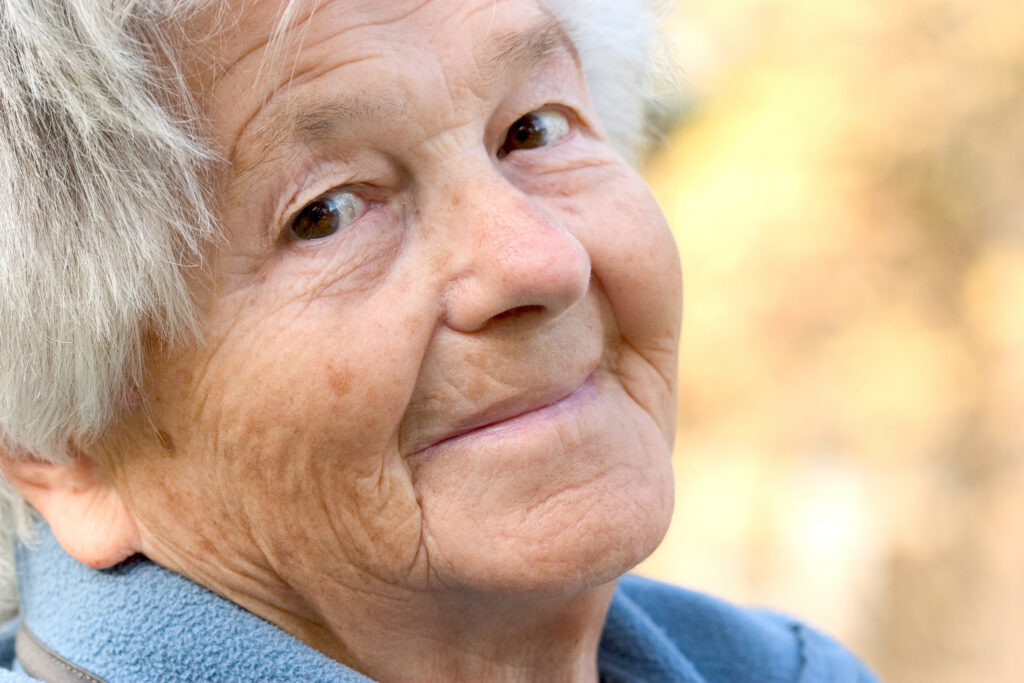A new study, published in the Journal of the American Geriatric Society, finds that older adults continue to be prescribed benzodiazepines without being offered psychotherapy. This practice persists despite decades of research warning of safety concerns with these drugs and demonstrating the effectiveness of alternative treatments.
The authors of the study, led by Donovan Maust, MD, from the Johns Hopkins University School of Medicine, suggest that more effort is needed to encourage physicians and patients to discuss the risks and benefits of benzodiazepines. They write:
“Although clicking ‘reorder’ may limit short-term patient (and provider) distress, there are critical concerns regarding the appropriateness and safety of most long-term benzodiazepine use in older adults in the Unites States.”

The American Geriatrics Society (AGS) has previously issued warnings against the use of benzodiazepines, identifying them as “one of 10 things physicians and patients should question” in their Choose Wisely Campaign. Most notably prescribed for insomnia and anxiety, benzodiazepine use is particularly concerning given the association between usage and increased risk of falls, fractures, motor vehicle accidents, impaired cognition, and dementia, in addition to other adverse outcomes (see MIA report). The high rates of prescription and usage not only persist despite these glaring concerns but do so in the face of research demonstrating psychotherapy and alternative medications to be the effective and recommended forms of treatment for insomnia and anxiety.
In light of this evidence, the challenges now facing patients and providers is identified by the authors: to discontinue long-term benzodiazepines and to supplement treatment with psychotherapy. More specifically, psychotherapy has been shown to effectively facilitate tapering from benzodiazepine usage, particularly in older adults diagnosed with insomnia.
Using a cross-sectional analysis research design, Maust and researchers compared the visits of benzodiazepine patients to nonusers and visits of continuation users to new benzodiazepine users with a specific focus on outpatient encounters of adults 65 years and older. These findings support previous research indicating the prevalence of benzodiazepine use and continuation in older adults. The finding that only 16% of users had a mental health diagnosis and less than 1% had been provided or referred to psychotherapy treatment was striking to the researchers, however.
Despite various limitations of this study including the ability to observe physicians practicing outside of office-based settings, the results are compelling and call for a shift in attitudes perpetuating harmful prescribing of benzodiazepines to older adults especially when psychotherapeutic support is not provided.
“These attitudes are frustrating given the growing evidence that older adults, even those with chronic use, can successfully decrease and be tapered off benzodiazepines using interventions including cognitive behavioral therapy and direct-to-consumer educational techniques. As attitudes about mental health disorders and treatment change, it may be that older adults will become more willing to consider psychotherapeutic treatment options. However, this will not be helpful if they have no access to specialty mental health services.”
****
Maust, D. T., Kales, H. C., Wiechers, I. R., Blow, F. C., & Olfson, M. (2016). No End in Sight: Benzodiazepine Use in Older Adults in the United States. Journal of the American Geriatrics Society,64(12), 2546-2553. doi:10.1111/jgs.14379 (Abstract)















“In light of this evidence, the challenges now facing patients and providers is identified by the authors: to discontinue long-term benzodiazepines and to supplement treatment with psychotherapy”
I was dependent on 8Mg of Xanax a day at one time. I think if you tried to discontinue elderly people who have been taking them for years some would die from withdrawals.
And people rarely talk about part 2 of the benzodiazepine nightmare after part 1 when they cut you off and send you to withdrawal hell. Part 2 is when they start with the prescriptions for the “non addictive” toxic atrocities like Paxil , Cymbalta , Abilify or what ever their favorite drug rep has been pushing lately.
So be careful saving old people from the evil benzos, the road to hell is paved with good intentions.
Report comment
The CDC was pushing antidepressants during the hysterics of the so-called opioid epidemic. “Max out on safe alternatives like SSRIs” (before you prescribe drugs that actually work) was the message from Dr. Deb Houry. She’s an emergency medicine specialist with a career interest in domestic abuse who has no idea what she’s talking about.
You’re right about withdrawal being potentially lethal for elderly people. I’m witnessing the horror of the ruinous effects of polypharmacy in both my parents right now. They were two of the smartest, healthiest people you’d ever want to meet, but they are now drugged to the gills, in their 80s, with pills to prevent heart attacks that neither is prone to. Statins, beta-blockers, and finasteride (to prevent cancer, except not) among others. They’ve both fallen so many times and had so many concussions as a result, in the last year r two, that they now need caregivers. I had no idea what a couple of walking drugstores their doctor had made them into until it was too late and their minds were fried. Then when the good doc responded to the opiod crisis by cutting the codeine he’d happily supplied for years to the addict he created, we had a nice case of withdrawal on top of it all. Somehow a statin was snuck in, after my dad discontinued in 2013, and my dad can barely talk or walk. He is enraged several times a day, and mostly stays in bed. He falls nearly every night, whereas he never fell before. I can’t get a sibling, my mom, or the doctor to give a damn, and my dad is too impaired to understand logic…Neither parent has their dignity intact. Thank you, brilliant FDA, for keeping us safe.
Report comment
Important topic to expose.
But I have a SERIOUS problem with the title of this article and I think the MIA editorial staff should consider making an immediate change.
“Benzodiazepines Continue to be Prescribed Without Psychotherapy to Older Adults”
The implication from this title is that things would be OK or better if therapy was somehow included with the benzos. In fact, is this not the standard status quo approach promoted by the Biological Psychiatry paradigm of so-called “treatment.” That is, that psych drugs COMBINED with therapy is the so-called “best practice” approach to providing care to those people in some sort of psychological distress.
Of course, in reality the mention of therapy is just some sort of inconsequential “lip service,” when the reality is that Psych drugs represent the new “STANDARD OF CARE” in community mental health and throughout organized medicine.
If benzos are given to people, either young OR old, for longer than two weeks (counting time for a safe withdrawal) EVEN with the greatest therapist or therapeutic program, they will most certainly end up with some serious drug related iatrogenic damage or possible death, PERIOD – END OF STORY!!!
Medical crimes and other forms of malpractice are being committed on a daily basis, especially with the elderly, but broadly throughout our society. With almost a hundred million benzo prescriptions every year in this country, most being long term, we have a crisis of epic proportions.
And don’t forget that at least 30 percent of all opiate overdose fatalities involve the use of benzos, where benzos may actually be the key component of the particular drug cocktail that leads to death. I believe this figure could possibly be closer to 50 percent given that about 60 percent of all opiate drug users (both legal and illegal) use benzos on a regular basis.
Richard
Report comment
“Encouraged” to discuss the realities with their patients???? Why aren’t the authors calling for doctors engaging in these practices to have sanctions on their licenses? Why should there not be class action lawsuits against doctors for ignoring the most basic instructions for the use of Benzos?
And I agree with Richard – the problem is not failing to provide psychotherapy alongside benzos, it is ignoring the fact that Benzos are not recommended for us for more than two weeks due to the risk of dependency, and that they are simply not appropriate for the uses they’re being prescribed. The only potential legitimate use (and I find this questionable) is for short-term use in anxiety attacks. These doctors are engaging in MALPRACTICE and should be called to account for it.
Report comment
Very sad. Especially when there are so many better natural alternatives. Inositol being one of them: http://www.optimallivingdynamics.com/blog/the-little-known-nutrient-that-can-help-treat-anxiety-and-depression-ocd-inositol
Report comment
I hope I get handed benzos when I’m nearing the end.
As well as all the other stuff.
Report comment
I am so thankful for Richard’s answer, ever ready for the truth regarding benzos to be told. And thank you also to Steve. You both make a world of good sense. It’s such a joy to read about those who support us in benzo withdrawal. It is a very, very lonely journey. Most of us are groping around in the dark, searching for answers, and looking to the Internet, trying so desperately to find pieces to the puzzle. We know the pitfalls of going to a psychiatrist, and many of us shy away from doctors because we’re not believed. Benzo withdrawal can last for a very long time. I’m entering my third year shortly, and as a senior citizen, this has been the most challenging time ever in my life.
Thank you two from the bottom of my heart.
Report comment
drt
I have been reading your comments for a couple of years now. I always feel your passion and learn something from the experience you share . And thanks for the positive feedback.
BTW, I just went to a forum discussion in my town last night on the opiate epidemic. There were some nurses and doctors there as well as other citizens. I focused my comments (and I said a lot as you might imagine) on the benzodiazepine crisis raging in this country, including its connection to the opiate crisis. People were very open to these comments, but there is so much ignorance out there. We have Mount Everest to climb when you look at all the billions spent by Big Pharma and the APA to brainwash people about brain “diseases” and the so-called curative powers and safety of their drugs.
We have much work to do.
Richard
Report comment
Thank you, Richard, for attending the forum discussion and for speaking out about benzos. Yes, you’re absolutely right. It is a Mount Everest to climb.
I believe that whatever pill a doctor prescribes, he/she must also possess the tools to get the patient off slowly and safely. It seems only right that doctors have this responsibility. I think we wouldn’t find as many people on drugs if that was enforced. Unfortunately, this isn’t taught in medical school.
Thank you so much for your dedication and work!! I appreciate it very much!!
Report comment
I had an elderly neighbor that was on benzos and SSRI’s. She didn’t take either one like she was supposed to. When she ran out of her benzos she went into withdrawal. She said I must need this medication because I’m so nervous and not sleeping without it. I tried my best to explain to her that she couldn’t stop start these kind of medications but she didn’t understand. This scenario is being played all over the United States.
Report comment
All I know is that 20 years ago the day the doctor gave me a prescription of Klonopin was the day my life ended. I still am alive but getting real bad. The internet was in its infancy. Ther was little discussion of the benzos. After learning so much about it, I tried titrating twice , both over the course of a year. It was horrific and I made it down to the last little sliver and went off . 2 to 3 months later all hell broke loose and I ended up in the emergency. Had to reinstate. while I was n the emergency room I was called a benzo junkie by a nurse and was told there are more people with benzo addiction coming into the hospital that heroin addiction. I can never get off this poison. Benzo withdrawal syndrome is real. It almost killed me. And the anxiety came back with a vengeance. I am only 62 but even had to go on disability as a result, many years ago. It not only ruined me , but my finances, my marriage and so many other things as in loss of friends, etc. I live in the shadow. Psychotherapy? Hogwash.
Report comment